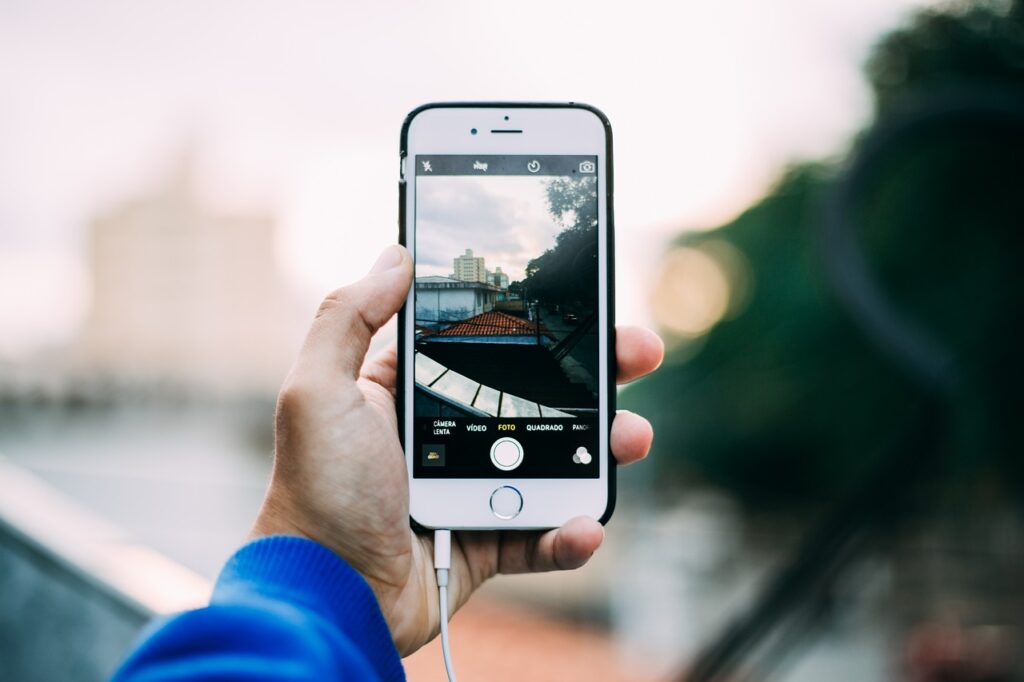Thinking about the future is always complicated, because there may be many situations that lead us to think that things in the future may be predictable, however, it may be totally uncertain for everyone.
The technological advances that have been presented throughout history have been very significant, especially in relation to the smartphones that we have today, since every time we have much more impressive versions of the things that we can buy today.
What we can probably find in history most often is iteration. With the passing of the years and time we may come to find that smartphones will be better than they are today in many ways and they will also be different in some aspects, such as their screens with better resolution and brightness, super advanced cameras that will be amazing, folding screens and even too smart digital assistants.
For example, today we already have OLED technology which is just a new way of displaying pixels, but it can flex and use very little power. However, we may come to think that the launches of mobile devices such as smartphones are going to stop being so exciting, even so, it does not mean that smartphones are going to stop being important, because they are already part of our culture and our lives.
The possibilities that exist in the future are too many, since we can continue with the same technology that we have now, or we may not have smartphones anymore but we have other devices that are much more advanced and that are directly connected to us and that everything is much easier.
An Example
If we look at cases in history, we can find a particular case, about fourteen years ago, the founder of Palm, Jeff Hawkins, unveiled his last big idea for technology, where he created the Treo smartphone long before the iPhone or Android. This phone was basically a fictitious terminal that simply acted as a window where all the real data of a user would be. However, today it is no longer necessary to store our lives on our phones, since practically all that data can live in the cloud, something that we probably would not have thought some years ago.
Foldables
Folding smartphones are a reality nowadays, however, taking into account the costs of one of these phones at the moment, it can be considered that a large part of people cannot afford such a phone. The ideal that can be expected is that the manufacturers of these devices can create these folding phones at a lower cost but are equally efficient.
However, if we think about it, there are several points that can be worrisome according to these devices, since being foldable, the screens are much more delicate, in addition to having hinges and moving parts that “are much more difficult to seal against dust and water than standard phone components.
Modular
In the future we may have devices and smartphones that can be transformed and updated as necessary, and that despite having already tried it has failed in the process. We could find devices where we can add better cameras, different sensors and new capabilities that increase the functions of these.
Examples
A while ago there was the G5 from LG, where we could find a camera accessory with a dedicated shutter button and that also allowed sliding its bottom section to add a hi-fi DAC. On the other hand, there was also Google’s Project Ara, with this system you could exchange the components of the smartphone, such as the processor, camera sensor/lenses, battery and even the screen, however, this project was paused. Motorola also made a go with its Moto Z line, where accessories could be attached magnetically to the back of the phone, however the sales figures weren’t good enough to continue the project.
Smart glasses
In the future, we may no longer have smartphones, but smart glasses with the same purpose as a phone. However, there are many challenges in this process, as it is important to find an interface that makes sense and feels the perfect fit between your eyes and the outside world. In addition, if you are a person who is constantly touching the screens of the phones it would be very uncomfortable to do these same actions but in glasses.
Ambient computing
Perhaps in the future we will no longer need smartphones, since at home and even when we are outside of it we will be able to find other devices in many places that “make it easier” for us to do many activities. For example, if you need ingredients for dinner, but they are not complete and you must buy them, your fridge already knows what is needed and the purchase has already been made so that you have everything as quickly as possible. Or for example, if you want to send a message to someone to ask something, your mirror or some other accessory in your home will already send the message.
Thinking about this type of situation and scenario brings many problems, including ethical problems, since we would be giving all our personal information to many technological objects, which may not end in the best way.
